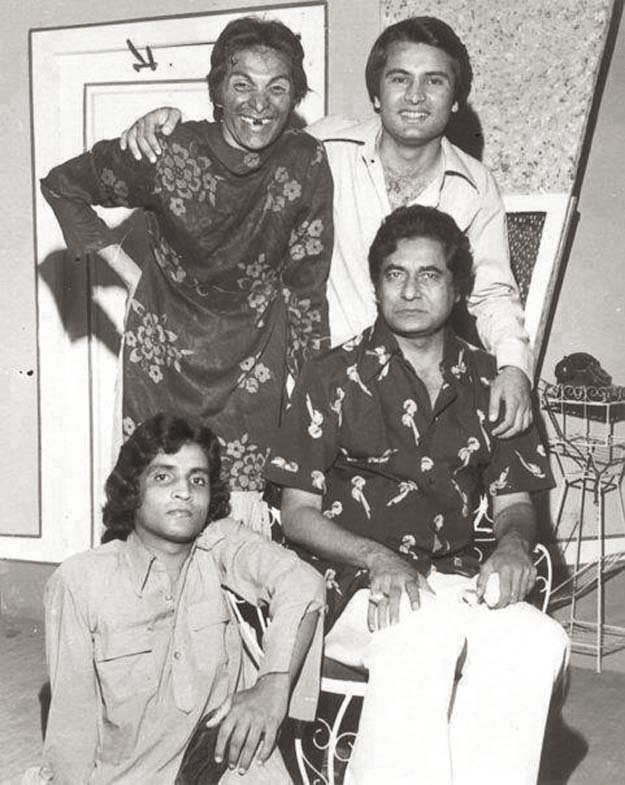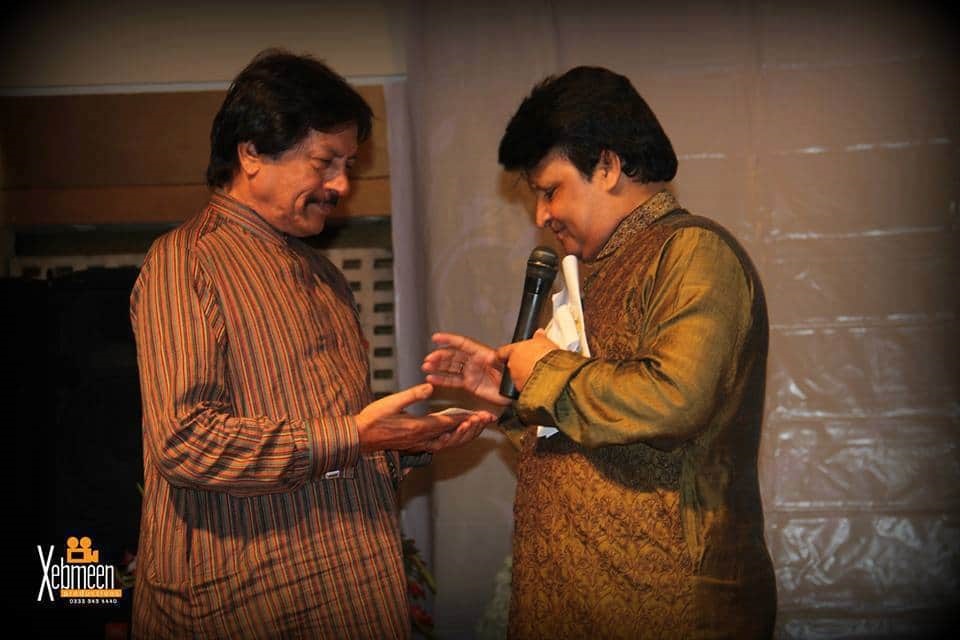
Written by: Hurmat Majid
Posted on: October 04, 2021 |  | 中文
| 中文
Umer Sharif and Moin Akhter in their famous stage show 'Charlie'
Umer Sharif, Pakistan’s ‘King of Comedy’, left the mortal world on October 2, 2021 after a long battle with heart ailments. The legendary actor breathed his last in Germany, while on his way to the USA where a complicated heart surgery awaited him.
Sharif had been ailing for some time, and had appealed to the Pakistan government in September to help him get a visa for travel to the US for treatment. The federal and the provincial government of Sindh had both gotten involved, and while the former had arranged for the easy and fast-tracked procurement of his visa, the latter had allocated a fund of Rs 40 million for his medical treatment. Sharif had travelled to Germany via air ambulance, and was set to continue his journey to the States from there, but fate had other plans. Sharif married thrice in his life, and is survived by two sons. As news of the legend’s death broke, many veteran actors, contemporaries, politicians and fans condoled on social media platforms and shared their griefs.
Born in Karachi as Mohammad Umer in 1960, Sharif started his stage career at the age of 14 in 1974. Dropping his first name and adding Sharif to his name, the young man lived out his dream on stage, making thousands of people laugh with his stage performances. He later dabbled in film and TV as well, but Sharif’s forte always remained the stage.
This legendary figure is singlehandedly responsible for breaking out a generation of stage comedians including Shakeel Siddiqui, Rauf Lala, Sikandar Sanam, Shakeel Shah, Naeema Garaj and Zareen Ghazal. One key to Sharif’s success was that he videotaped his stage shows, which were then sold and rented out as one would do a movie in olden times. Yes Sir Eid and No Sir Eid were among the first stage plays to be available on video. In the absence of subscription services and the internet, Sharif managed to reach many a household through this ingenious idea. Even today, in the age of unlimited access and technology, Sharif’s legacy lives on in the form of YouTube videos, with clips of his popular shows often gracing peoples’ Facebook and Twitter feeds. Some of his popular plays were Bakra Qistoon Pe, Buddha Ghar Pe Ha and Doctor Aur Kasai. Geo TV’s The Sharif Show, a reality television show where he interviewed popular personalities, also became a household favorite. Sharif’s humor and wit gave these interviews a spark and flair that most shows of this format lacked.

Standing (L to R) Moin Akhtar, Behroz Sabzwari, sitting (L to R) Lehri (Safirullah Siddiqui) and Umer Sharif
Sharif not only garnered an audience in Pakistan but also abroad. His tapes were a hot selling item in the Indian black market, at a time when Pakistani content was banned there. Later, when diplomatic ties allowed it, Sharif repeatedly visited India. He also appeared on the Indian stand-up comedy show The Great Indian Laughter Challenge, alongside Navjot Singh Siddhu and Shekhar Suman. Over the years, Sharif cemented his position in the subcontinent as the "King of Comedy". Indian comedians like Johnny Lever and Raju Srivastav, who have audiences spanning millions themselves, often referred to Sharif as "The God of Asian Comedy".
Sharif received a Tamgha-e-Imtiaz a few years ago, an important award from the state. Sharif also received national awards for Best Director and Best Actor in 1992 for Mr. 420, and also received ten Nigar Awards. He was the only actor to receive four Nigar Awards in a single year, and three Graduate Awards.
Sharif was also a philanthropist, known to have helped several people in need, including stage performers. In 2006, he formally created the Umer Sharif Welfare Trust, intending to create a state-of-the-art health center that provides services free of cost.

Attaullah Khan Esakhelvi and Umer Sharif in the fundraising ceremony of Umer Sharif's hospital 'Maa'
The punchlines he created will continue to be a part of our culture. Comedians that succeed him, will forever continue to mimic his comic timing and delivery, and audiences will continue to laugh at the content he created. While Umer Sharif is gone, his legacy lives on.
You may also like: